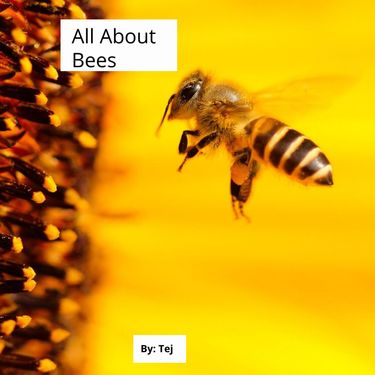Global pollinator declines are causing rising concern for the future of global food security. Bee populations in particular are declining at an alarming rate, leading to organizations such as the United Nations to call for action to reverse the trend. Through education and action, world leaders hope to reverse the trend.
Pollinator pupils
Wildsight’s EcoStewards program supports students in building a better relationship with the natural world. Kids make direct connections to how important a healthy and diverse ecosystem is, and are empowered to take positive steps to make their community a better place.
Grade 4 students in Sparwood’s Frank J Mitchell school learned all about pollinators through an EcoStewards program this past school year.
“Our goal was to increase understanding of pollinators’ importance, and spread that awareness,” says Wildsight Educator Janelle Park.

The kids started with a fun introduction to the science of pollination. They munched on cheese puffs to see how pollination happens (the cheese stuck to their fingertips) and used modelling clay to mimic how mason bees make their nests in tubes.
They chose a pollinator to research and wrote a story to demonstrate their learning; the books are now in the school library for all students to study and enjoy.
“Through both research and creating their books, students learned so much about pollinators, their role in the ecosystem, and how to help protect them,” says Janelle.
 One student wrote a nonfiction book, All About Bees. True to its title, the publication includes interesting facts as well as lovely photos of bees. For example, did you know an average bee hive can hold around 50,000 bees? Or that they fly about 20 mph and have five eyes?
One student wrote a nonfiction book, All About Bees. True to its title, the publication includes interesting facts as well as lovely photos of bees. For example, did you know an average bee hive can hold around 50,000 bees? Or that they fly about 20 mph and have five eyes?
Another student wrote a creative story called The Water Mystery about a young hummingbird named Averie who went on a quest to find out why her home was suffering from a water shortage. Along her journey, she met bees, wasps, and moths before encountering a greedy ladybug who she discovered was stealing the water. Averie bravely confronted him, outlining the critical need for a sustainable, healthy supply of water.
The class took a field trip to a wildflower meadow at Kikomun Creek Provincial Park where they conducted a survey to identify pollinator food found in the meadow.
“I had no idea there are so many wild parts of this park that I have camped at. It is so green and so beautiful,” one student exclaimed to Janelle.
To wrap up the program, each student brought a pollinator-friendly flower home to help create a pollinator-positive community.
Little learners today are the leaders of tomorrow, and kids from Sparwood’s Frank J. Mitchell Elementary now know the power of the pollinator thanks to this Wildsight Education program.
Wildsight thanks the Community Foundation of the Kootenay Rockies, Consecon Foundation, Copernicus Education Products, Hamber Foundation, the Province of British Columbia, TD Friends of the Environment, and all of our individual donors for making this program possible.



